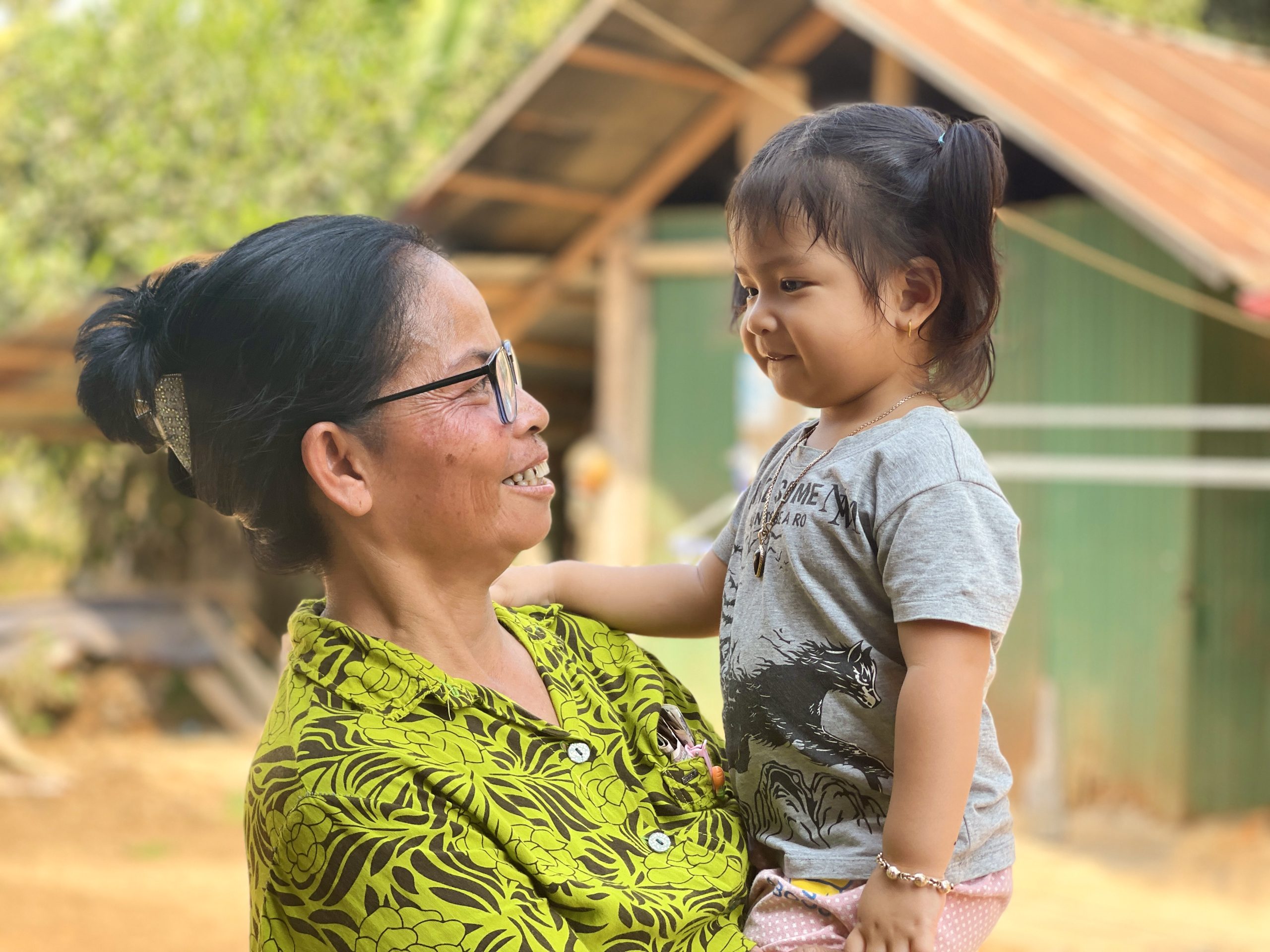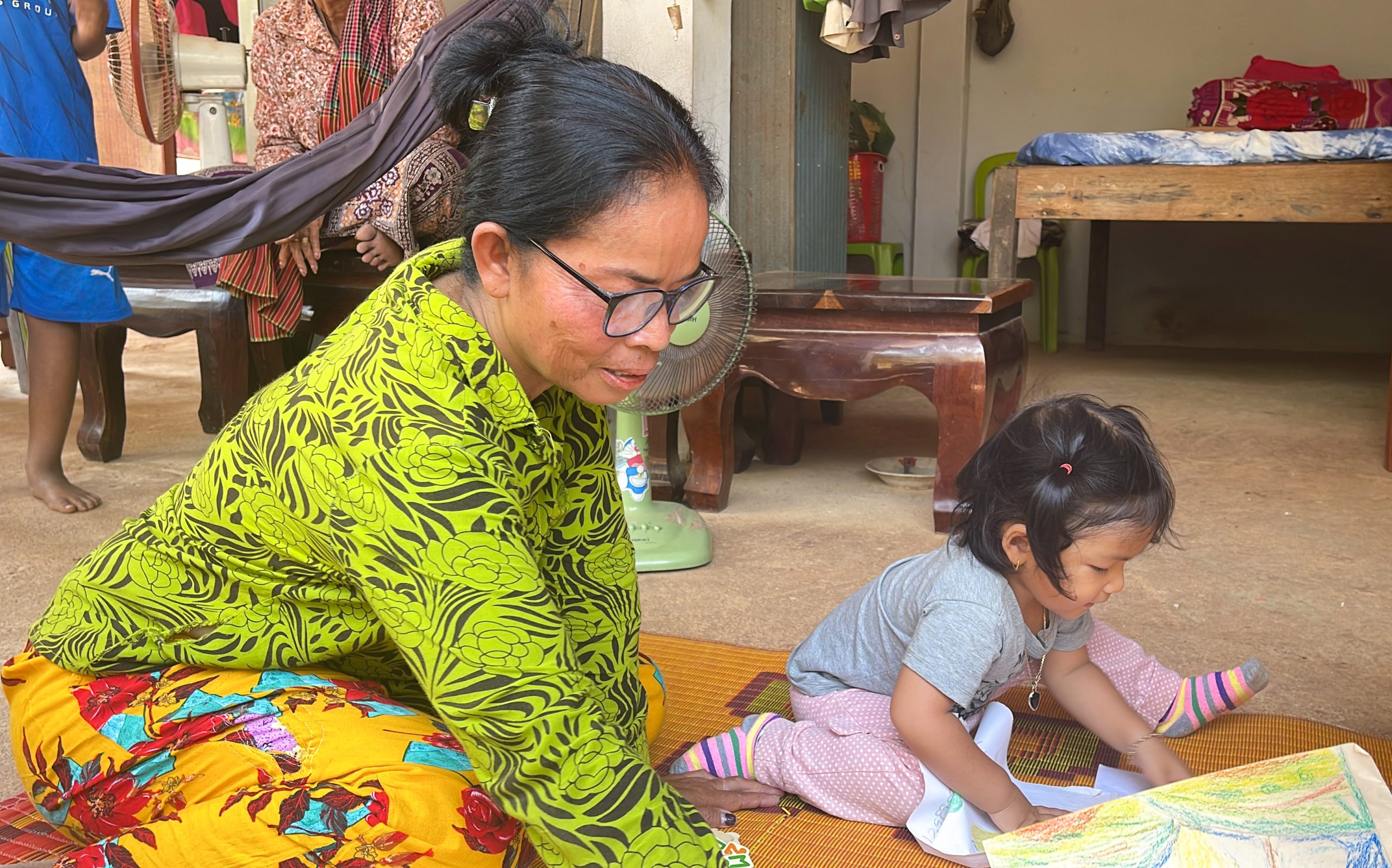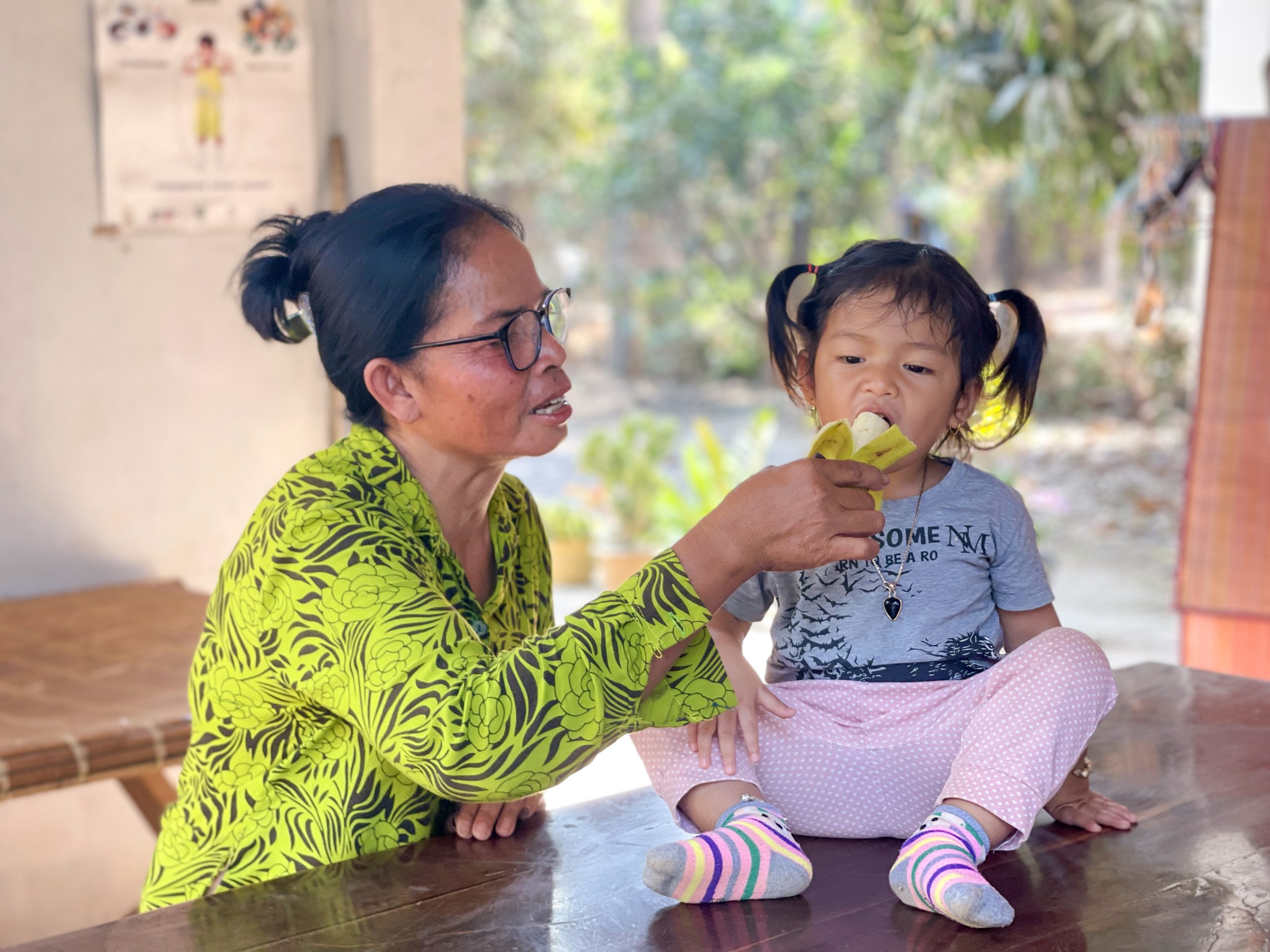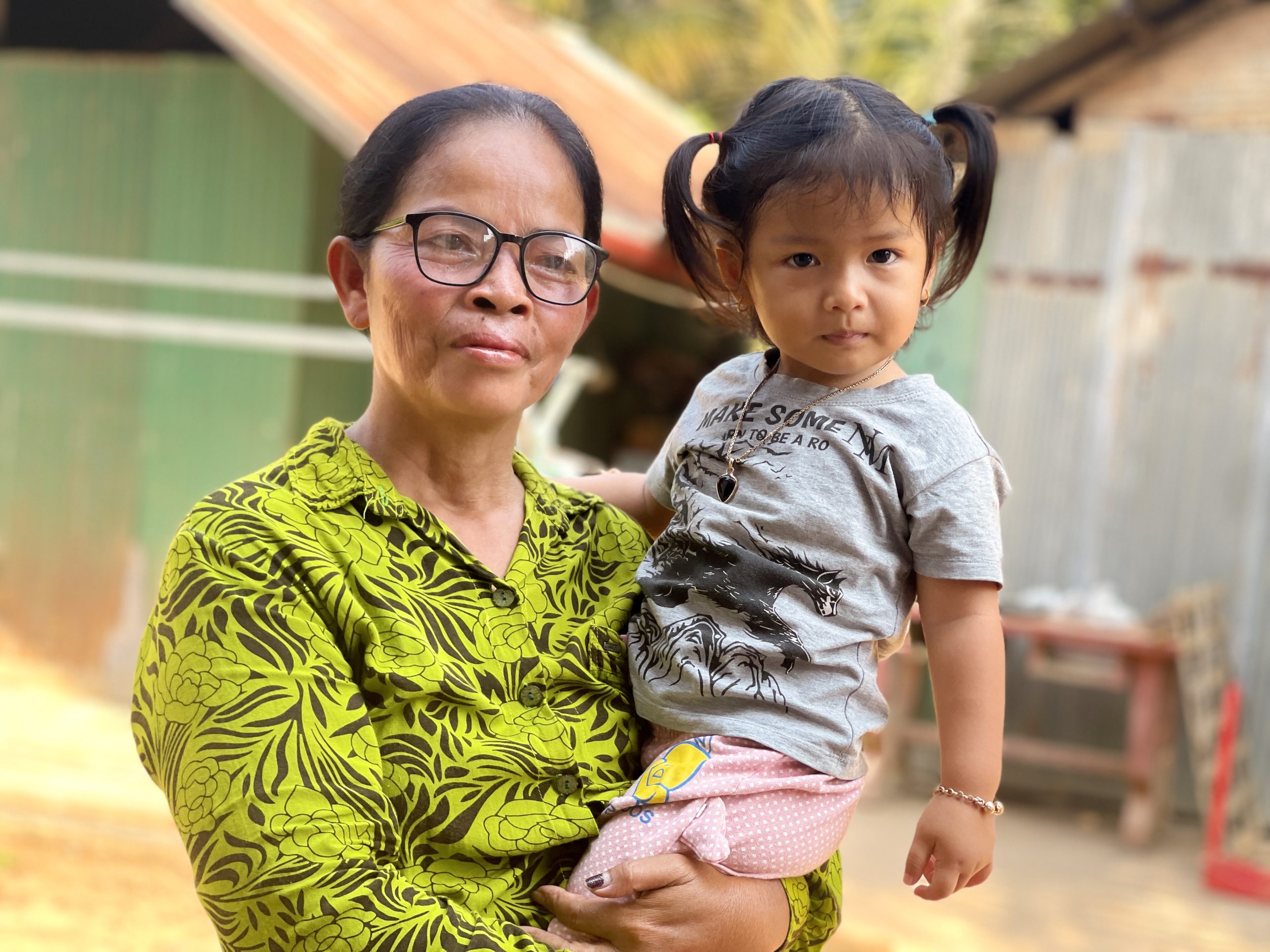
Sopheap, a 53-year-old wife and mother of four from Otapoarng commune, Bakan district, Pursat province, faced a familiar challenge. When her granddaughter came to live with her at just one month old, due to her parents’ migration for work, Sopheap relied on traditional methods of care. While her heart was in the right place, her knowledge of nutrition, hygiene, and child development was limited. This led to a messy home environment, unhealthy snacks, and frequent illnesses for her granddaughter.
Sopheap admitted, “Walking into the first Best CHOICES meeting, I realized I had a lot to learn. Nutrition? Reflect Circle discussions? These were all new concepts to me. Even things like hygiene, keeping things clean, and managing waste were areas I wasn’t sure about. Honestly, back then, my house wasn’t very tidy – there was always rubbish around, and flies seemed to follow us everywhere. As for my granddaughter’s food, I just did what I always had.”

However, everything changed when Sopheap joined the Best CHOICES project. Through participation in “Reflect Circle” discussions, she gained valuable knowledge on crucial topics like childcare, sanitation, healthy eating, and fostering a child’s learning. Inspired by these sessions, Sopheap transformed her approach to childcare. She implemented waste management practices, planted a kitchen garden for fresh vegetables, and focused on preparing nutritious meals with readily available local ingredients.

The results were evident. Sopheap’s granddaughter not only thrived on a healthy diet but also benefited from “Learning Through Play” activities using different materials. These activities fostered social communication skills and overall development. Notably, Sopheap’s granddaughter even learned to independently collect trash, demonstrating a growing awareness of hygiene practices. Sopheap’s story is a testament to the empowering impact of knowledge and community support.

The Best Community Household Opportunities through Improved Community Empowered Solutions (Best CHOICES) Project is supported by the Australian Government and ADRA Australia.

